Buying a home is one of the most significant financial decisions you’ll ever make. It requires careful planning and a clear understanding of your financial situation. One of the best tools to help you navigate this complex process is a mortgage calculator. In this article, we’ll explore how using a mortgage calculator can guide your home buying decisions, helping you make smart, informed choices.
The Importance of Smart Home Buying
Understanding the Home Buying Process The home buying process can be overwhelming, especially for first-time buyers. It involves multiple steps, from finding the right property to securing financing. Understanding each step and the associated costs is crucial for making informed decisions. A mortgage calculator can simplify this process by providing a clear picture of your financial commitments.
Making Informed Decisions Making informed decisions is key to successful home buying. With accurate information on your potential mortgage payments, interest rates, and total loan costs, you can evaluate different options and choose the one that best fits your financial goals. A mortgage calculator provides this information, helping you avoid costly mistakes and ensure a smooth home buying experience.
What is a Mortgage Calculator?
Definition and Purpose A mortgage calculator is an online tool designed to help you estimate your monthly mortgage payments and overall loan costs. By inputting details such as the loan amount, interest rate, and loan term, you can see how different factors affect your mortgage. This tool is invaluable for planning your budget and understanding your financial obligations.
Different Types of Mortgage Calculators There are several types of mortgage calculators, each designed for specific purposes. Some common types include calculators for estimating monthly payments, comparing different loan options, and determining the impact of extra payments. Understanding these different calculators can help you choose the right tool for your needs.
How a Mortgage Calculator Works
Key Inputs and Outputs To use a mortgage calculator, you’ll need to enter several key inputs, including the loan amount, interest rate, loan term, and down payment. The calculator then uses this information to provide outputs such as your monthly payment, total interest paid, and amortization schedule. These outputs help you understand the financial impact of your mortgage.
Interpreting the Results Interpreting the results of a mortgage calculator is crucial for making informed decisions. By analyzing the outputs, you can see how different factors, such as interest rates and loan terms, affect your payments and overall loan costs. This understanding allows you to make adjustments to your mortgage plan and choose the best options for your financial situation.
Benefits of Using a Mortgage Calculator
Financial Planning and Budgeting One of the primary benefits of using a mortgage calculator is its role in financial planning and budgeting. By providing a clear picture of your mortgage payments, it helps you determine how much you can afford to borrow and set a realistic budget for your home purchase. This planning is essential for ensuring that you don’t overextend yourself financially.
Comparing Different Loan Options A mortgage calculator also allows you to compare different loan options. By inputting various interest rates, loan terms, and down payments, you can see how these factors affect your payments and overall loan costs. This comparison helps you find the best loan options and choose the one that offers the most favorable terms.
Setting Realistic Home Buying Goals
Determining Your Budget Setting a realistic budget is a crucial step in the home buying process. A mortgage calculator helps you determine how much you can afford to borrow based on your income, expenses, and financial goals. By understanding your budget, you can focus your home search on properties that fit within your financial limits.
Setting Priorities and Preferences In addition to setting a budget, it’s important to establish your priorities and preferences. Consider factors such as the type of property, location, and desired features. By aligning your priorities with your budget, you can make informed decisions and find a home that meets your needs without exceeding your financial capabilities.
Calculating Monthly Payments
Factors Affecting Monthly Payments Several factors affect your monthly mortgage payments, including the loan amount, interest rate, loan term, and down payment. By inputting these details into a mortgage calculator, you can see how changes in these factors impact your payments. This information helps you choose the right loan terms and manage your budget effectively.
Impact of Interest Rates and Loan Terms Interest rates and loan terms play a significant role in determining your monthly payments. Lower interest rates and shorter loan terms generally result in lower overall costs but higher monthly payments. Conversely, higher interest rates and longer loan terms result in lower monthly payments but higher overall costs. A mortgage calculator helps you find the right balance between these factors.
Estimating Total Loan Costs
Principal and Interest Your total loan costs consist of the principal amount (the original loan amount) and the interest charged on the loan. A mortgage calculator helps you estimate these costs by providing detailed breakdowns of your payments over the loan term. Understanding these costs is crucial for financial planning and budgeting.
Additional Costs and Fees In addition to principal and interest, there are several additional costs and fees associated with a mortgage, including property taxes, insurance, and closing costs. A comprehensive mortgage calculator includes these costs in its estimates, giving you a complete picture of your financial obligations.
Understanding Amortization Schedules
How Amortization Works Amortization is the process of gradually paying off a loan through regular payments. Each payment consists of both principal and interest, with the portion of principal increasing over time. A mortgage calculator provides an amortization schedule, showing the breakdown of each payment and helping you understand how your loan balance decreases over time.
Creating an Amortization Schedule Creating an amortization schedule is a key feature of a mortgage calculator. By inputting your loan details, you can generate a detailed schedule that shows your payments, the portion of principal and interest, and your remaining loan balance at each point in time. This schedule is useful for financial planning and tracking your loan repayment progress.
The Role of Interest Rates in Mortgage Decisions
Fixed vs. Variable Rates When choosing a mortgage, you can opt for a fixed-rate or variable-rate loan. Fixed-rate loans offer stable payments with a constant interest rate, while variable-rate loans have rates that can change over time. A mortgage calculator helps you compare these options and understand the potential impact on your payments and overall costs.
Predicting Rate Changes Interest rates can fluctuate based on economic conditions, inflation, and central bank policies. While it’s challenging to predict exact rate changes, a mortgage calculator can help you model different scenarios and see how rate changes affect your payments. This information is valuable for making informed decisions and planning for potential rate fluctuations.
Exploring Different Loan Types
Conventional Loans Conventional loans are a popular choice for many homebuyers. These loans are not insured or guaranteed by the government and typically require a higher credit score and down payment. A mortgage calculator helps you evaluate conventional loans by providing detailed estimates of your payments and overall costs.
Government-Backed Loans Government-backed loans, such as FHA, VA, and USDA loans, offer benefits such as lower down payments and more flexible credit requirements. A mortgage calculator allows you to compare these loans with conventional options, helping you determine the best fit for your financial situation and home buying goals.
Evaluating Loan Offers
Understanding Loan Terms When evaluating loan offers, it’s important to understand the terms, including the interest rate, loan term, and any additional fees. A mortgage calculator helps you compare different offers by providing clear estimates of your payments and overall costs. This comparison ensures that you choose the loan with the most favorable terms.
Comparing Lenders Different lenders may offer varying interest rates, fees, and loan terms. Using a mortgage calculator, you can compare offers from multiple lenders and find the best deal. This comparison helps you secure a mortgage that fits your financial goals and budget.
The Impact of Down Payments
Benefits of Larger Down Payments Making a larger down payment can reduce your overall loan amount and monthly payments. It can also help you avoid private mortgage insurance (PMI) and secure a lower interest rate. A mortgage calculator helps you see the impact of different down payment amounts on your payments and total loan costs.
Down Payment Assistance Programs Several programs offer assistance with down payments, making it easier for first-time buyers to afford a home. A mortgage calculator can help you explore these options by showing how down payment assistance affects your overall financial situation and mortgage terms.
Using a Mortgage Calculator for Refinancing
When to Consider Refinancing Refinancing your mortgage can offer several benefits, including lower interest rates, reduced monthly payments, and access to home equity. A mortgage calculator helps you determine if refinancing is a good option by comparing your current loan with potential new terms.
Calculating Savings from Refinancing By inputting your current loan details and new loan terms, a mortgage calculator can estimate the savings from refinancing. This estimate helps you decide if the potential savings outweigh the costs of refinancing, ensuring that you make a financially sound decision.
Avoiding Common Mortgage Mistakes
Overestimating Your Budget One common mistake is overestimating how much you can afford to borrow. A mortgage calculator helps you set a realistic budget by providing accurate estimates of your monthly payments and overall costs. This tool ensures that you don’t overextend yourself financially.
Not Considering All Costs Another mistake is not considering all the costs associated with a mortgage, such as property taxes, insurance, and maintenance. A comprehensive mortgage calculator includes these costs in its estimates, giving you a complete picture of your financial commitments.
Maximizing Savings with a Mortgage Calculator
Finding the Best Rates and Deals A mortgage calculator helps you find the best rates and deals by comparing different loan options and lenders. By using this tool, you can secure the most favorable terms and maximize your savings over the life of your loan.
Timing Your Home Purchase Timing your home purchase can also impact your mortgage terms and overall costs. A mortgage calculator allows you to model different scenarios and see how changes in interest rates and market conditions affect your payments. This information helps you time your purchase to get the best deal.
Case Studies: Successful Home Buying with a Mortgage Calculator
Real-Life Examples Real-life examples of successful home buying with a mortgage calculator can provide valuable insights and lessons. These case studies show how different buyers used the tool to make informed decisions, secure favorable terms, and achieve their home buying goals.
Lessons Learned Lessons learned from these case studies can help you avoid common mistakes and make the most of a mortgage calculator. By following the strategies and best practices from successful buyers, you can ensure a smooth and financially sound home buying experience.
Frequently Asked Questions (FAQs)
What information do I need to use a mortgage calculator? To use a mortgage calculator, you’ll need details such as the loan amount, interest rate, loan term, and down payment. This information allows the calculator to provide accurate estimates of your payments and overall costs.
How accurate are mortgage calculators? Mortgage calculators provide estimates based on the information you input. While they offer valuable insights, it’s important to consult with a financial advisor or lender for precise figures and personalized advice.
Can I use a mortgage calculator for different types of loans? Yes, mortgage calculators can be used for various types of loans, including conventional, FHA, VA, and USDA loans. By inputting different loan terms, you can compare options and find the best fit for your needs.
What is the difference between pre-qualification and pre-approval? Pre-qualification is an initial assessment of your borrowing potential based on self-reported information, while pre-approval involves a more detailed review of your financial situation and credit history. Pre-approval offers a more accurate estimate of your loan eligibility and terms.
How does my credit score affect my mortgage options? Your credit score plays a significant role in determining your mortgage options and interest rates. Higher scores typically result in better terms and lower rates, while lower scores may limit your options and increase costs.
What should I do if the mortgage calculator shows unaffordable payments? If the mortgage calculator shows unaffordable payments, consider adjusting your loan amount, term, or down payment. You may also explore other loan options or seek financial advice to find a more affordable solution.
Using a mortgage calculator is a smart way to guide your home buying decisions. By providing accurate estimates of your payments, loan costs, and financial commitments, this tool helps you make informed choices and avoid costly mistakes. Whether you’re a first-time buyer or looking to refinance, a mortgage calculator is an invaluable resource for achieving your home buying goals. With careful planning and the right information, you can secure favorable mortgage terms and make your dream of homeownership a reality.







